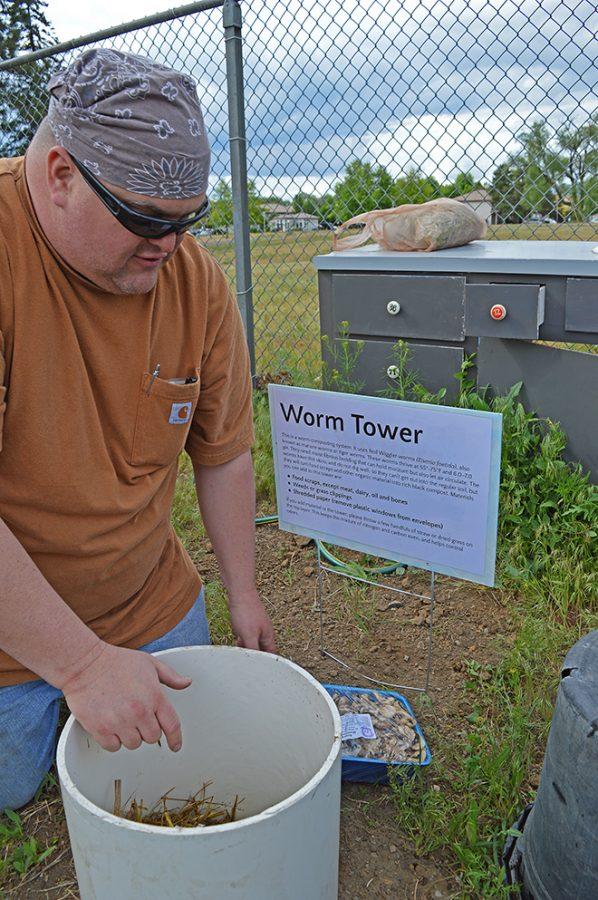Finding your green thumb with Central’s Garden Club
May 12, 2016
Students have few opportunities to interact with the natural world if they are not in any of the science departments, but Central’s Garden Club is here to help students get their hands dirty. One of Central’s smaller clubs, the club is made up of just a few members, but their number grows in the Spring and Summer quarters – the ideal growing time for plants here in Ellensburg.
“We have a little hard core of people that do stuff here over the winter,” David Sturgell, senior technology and education major, said. “But in the summer, this place will really take off.”
The garden has existed for four years, but the club only recently became official with the ASCWU.
Before being a garden, it used to be a gravel lot, then it was a park. Some of the remnants of its past are still present; there is a small basketball court and hoop, some picnic tables and a swinging bench, and even a wild Italian plum tree that the club is taking care of.
Right now the garden has around 20 separate plots, most of which were built by Sturgell and other members of the club. A lot of the materials that the club receives are donated by local businesses around town. They also get some resources and help from Central’s facilities department, but other than that, most of the tools and supplies are purchased by the members themselves.
“When you do a community thing, people want to give you stuff,” said Rebecca Pearson, associate professor from the department of health, educational administration and movement studies.
The club also has various composting projects that anyone who uses the garden can pitch in for. Even local restaurants chip in by donating food scraps.
The club uses multiple methods of composting. Pearson, while trying to avoid a nipping bulldog puppy, demonstrated trench composting and Sturgell presented worm tower composting, which uses PVC pipe, food scraps, and a species of worms called red wigglers.
Students from all over campus can come to the garden and contribute. According to Sturgell, there have been several Asian students that have come in and planted vegetables from their home countries.The garden is not just for individual students, classes as a whole can utilize the garden as well.
“Three years ago, we just thought that there would be just a bunch of weirdos here, like us, and we would be off in the corner and nobody would bother us. But as people have discovered the garden, there have been so many different organizations,” Sturgell said. “These [small planters] were put in by the Science Education group and they ran a program for biosciences for junior high students and they made miniature archaeological digs. They called it CSI.”
The Garden club has big dreams for the future of their club. They would like to further expand into the space around the garden to include a greenhouse and possibly even a small classroom. The members are also hoping to make the garden more ADA accessible for those with disabilities, which is very important since Sturgell’s wife, Katie, is in a wheelchair.
The club is open to all and all projects are welcome. The only rule is no pesticides are allowed. They meet on Thursdays at 4 p.m. and if you want a plot of your own, contact Pearson for more information.



